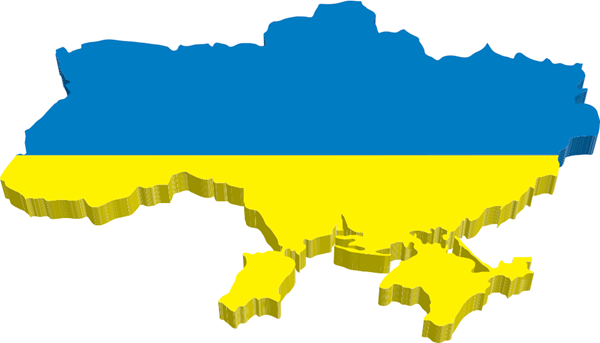Ukrainian government's plan for public policy toward Donbas: reintegration or capitulation?
On January 11, the Cabinet of Ministers of Ukraine approved a plan of measures aimed at the implementation of some of the principles of the state domestic policy with respect to certain areas of the Donetsk and Luhansk regions where public authorities are temporarily not exercising their powers. The document caused a strong reaction in the parliament and drew criticism from experts.
The essence of the document
The plan for the creation of some economic and socio-cultural relations with the occupied part of the Donbas was initiated by the Ministry of Temporarily Occupied Territories and Internally Displaced Persons. According to the government, the plan will allow the reintegration of areas of Donetsk and Luhansk regions that are temporarily uncontrolled by Ukraine including their populations in a single constitutional space of the country. The plan also includes establishing communication with the Ukrainians living there, as well as resisting military aggression by non-military means.
The paper describes 17 tasks that include the promotion of healthy lifestyle, reducing the incidence of HIV/AIDS, promotion of "people's diplomacy,” ensuring the rights of citizens living in the uncontrolled territory, and actions within the spheres of education, social benefits and information to name a few.
However, there are quite a few controversial tasks. One of these is the guarantee of payment of salaries at the facilities of Ukrenergo and Ukrzaliznytsya, which separatists declared nationalized. The document also talks about promoting the use of the Russian language and reconciling with the separatists instead of investigating their crimes. One outstanding feature is that the document does not contain any mention of Russian aggression. The occupied territories themselves are called uncontrollable but there is no explanation for why that is so.
Samopomich urged SBU to "deal with” the authors of the plan
The government's initiative vexed some of the deputies. The Samopomich faction demanded that the government abandon the plan and that the SBU initiate a case of treason against those who prepared this document. Such a statement from the rostrum of parliament was made by Deputy Chairman of the Verkhovna Rada Oksana Syroyid.
"This concept not only avoids talking about the war, but also the ATO is not mentioned. It talks about the armed conflict, which has happened for reasons unknown," she added.
In general, the Samopomich faction accused the government of ignoring the refugees and the imposition of "all the burden of losses on the shoulders of Ukrainians, because the restoration must be paid for by the Ukrainian taxpayers."
Politicians have protested against the preservation of trade on the occupied territories and said that the initiators of such proposals are oligarchs and Russia.
The head of the Parliamentary Committee on Foreign Affairs, Hanna Hopko proposed that the state leadership, Verkhovna Rada and the government develop a strategy together for the return of the Ukrainian territories temporarily occupied by the Russian Federation.
According to Hopko, there is a need to speak honestly with Ukrainian society in that the war in Donbas might drag on. According to the head of the committee, today "it is very important not to make those trade-offs, which later will have dire consequences."
The government's tough response
The Cabinet of Ministers was outraged by the suspicions of the deputies. The Cabinet justified the document with concern about Ukrainian citizens and soft social reintegration of the occupied territories.
Representative of the Petro Poroshenko Bloc, MP Dmytro Lubinets called for them "not to aggravate the situation, but to unite the country." However, Prime Minister Volodymyr Groysman reacted more harshly. He called the deputies’ suspicions "utter nonsense" and said that politicians who are "spreading a panic" are "hysterics" who raise their ratings at the expense of human emotions.
The government drew attention to the humanitarian aspects of the plan, particularly the possibility for children from schools within the uncontrollable territories to study in Ukrainian universities. The controversial points were not commented on.
What the experts have to say
Statesman and former key member of the Minsk process Roman Bezsmertnyi does not consider this document dangerous. He believes that this plan will not work and that criminal charges could be filed immediately against any person who signs it or commits actions related to the transfer of funds. He was of the further opinion that society "will not forgive the authorities for the surrender."
Diplomat Bohdan Yaremenko believes that via this document the Cabinet actually admitted responsibility for the observance of human rights, needs and interests of citizens of Ukraine in certain areas.
"Under international law, the responsibility for the observance of human rights in the occupied territories is laid on the occupier state. Instead, the Cabinet has confirmed that it bears this responsibility. This means that there are no territories occupied by the foreign state in the East of Ukraine, but there is an internal conflict, which resulted in the temporary cessation of the activity of the bodies of state power of Ukraine, which is being restored now," Yaremenko said.
The former Government Commissioner for the European Court of Human Rights, Borys Babin is afraid that the document can prevent Ukraine from winning its lawsuit against Russia, which it filed on January 16 in the International Court of Justice in The Hague. According to Babin, such documents may be used by Russian lawyers as confirmation of the thesis that there is an internal conflict happening in Ukraine and that Kyiv itself must bear responsibility for crimes on the territories it does not control.
